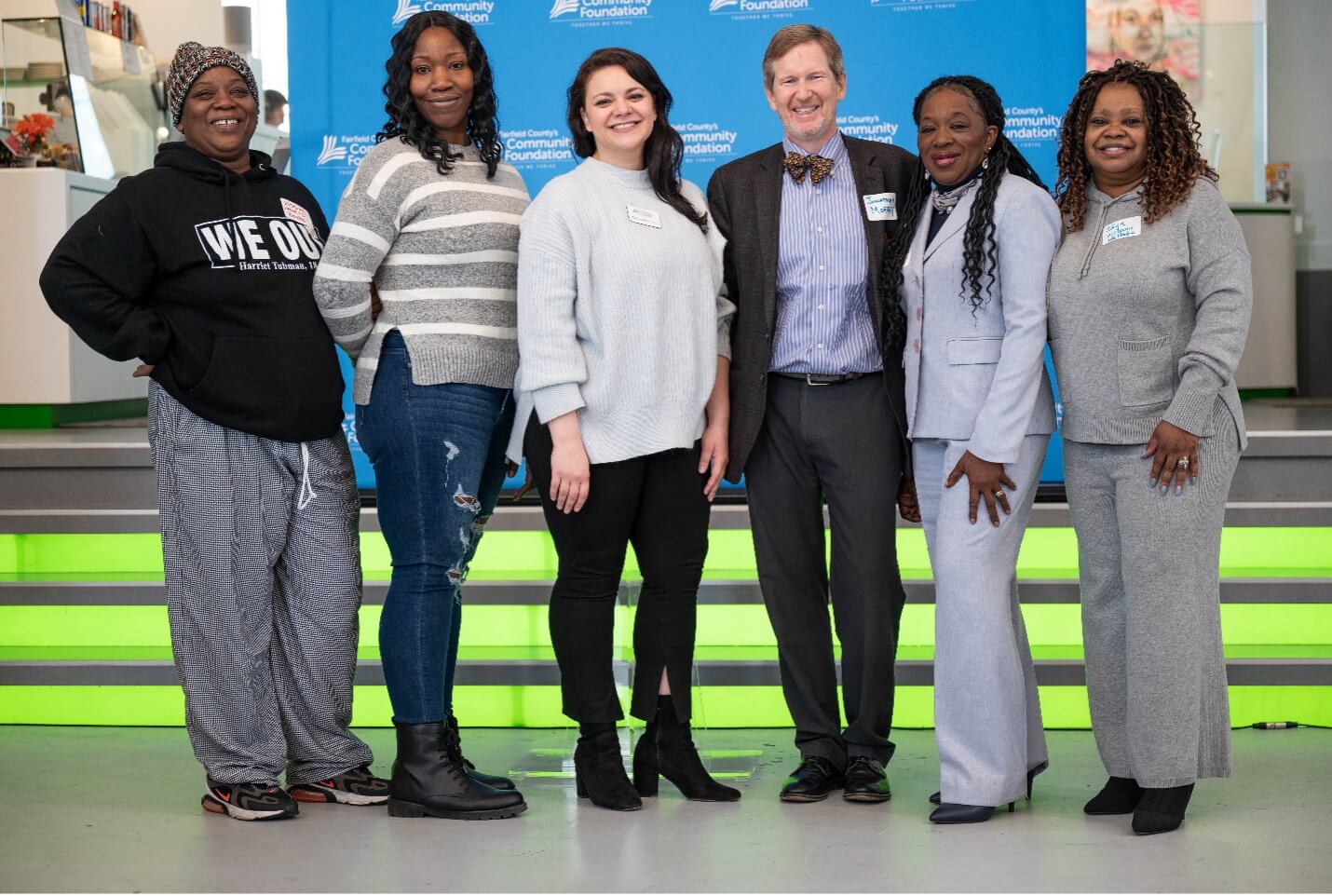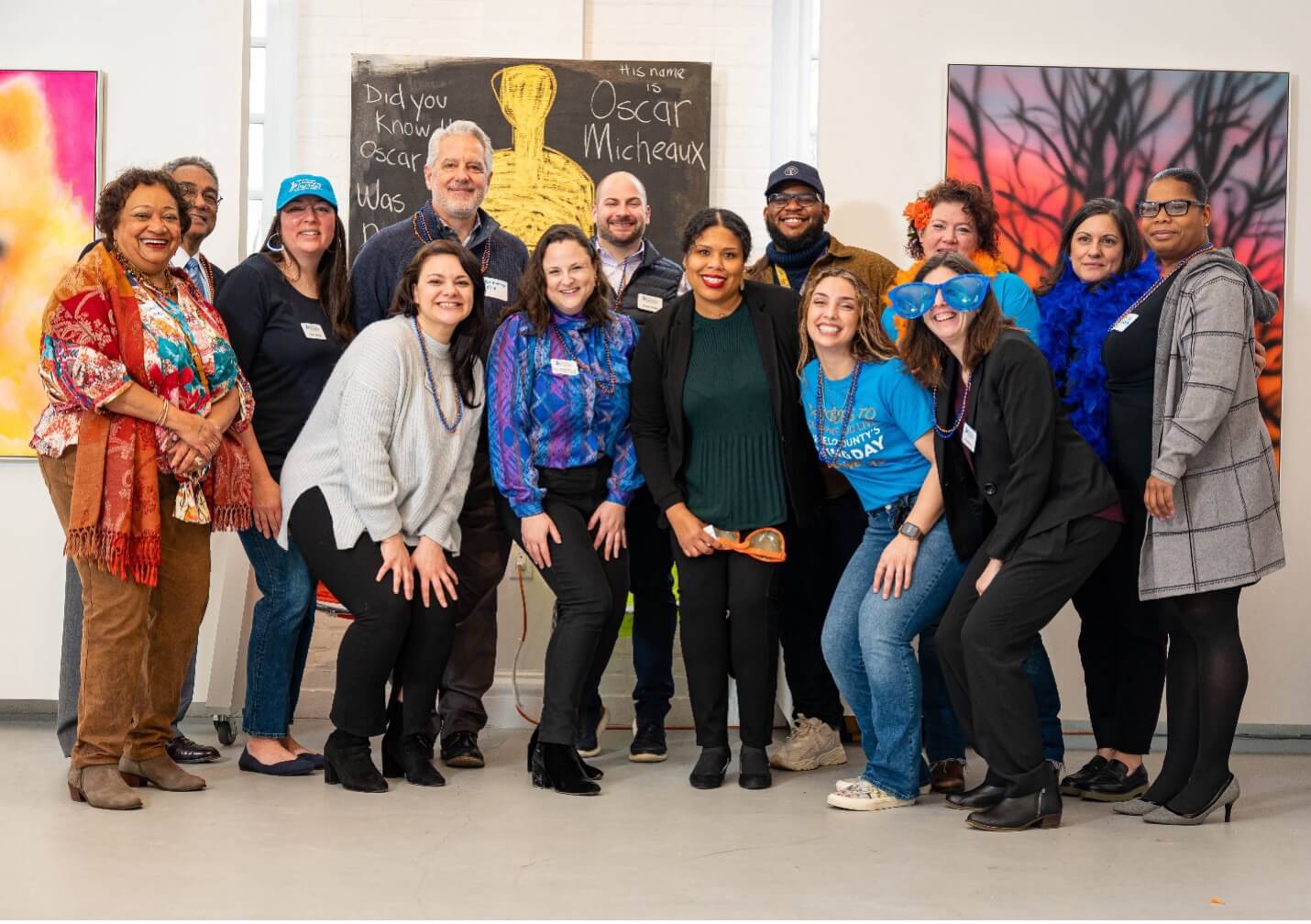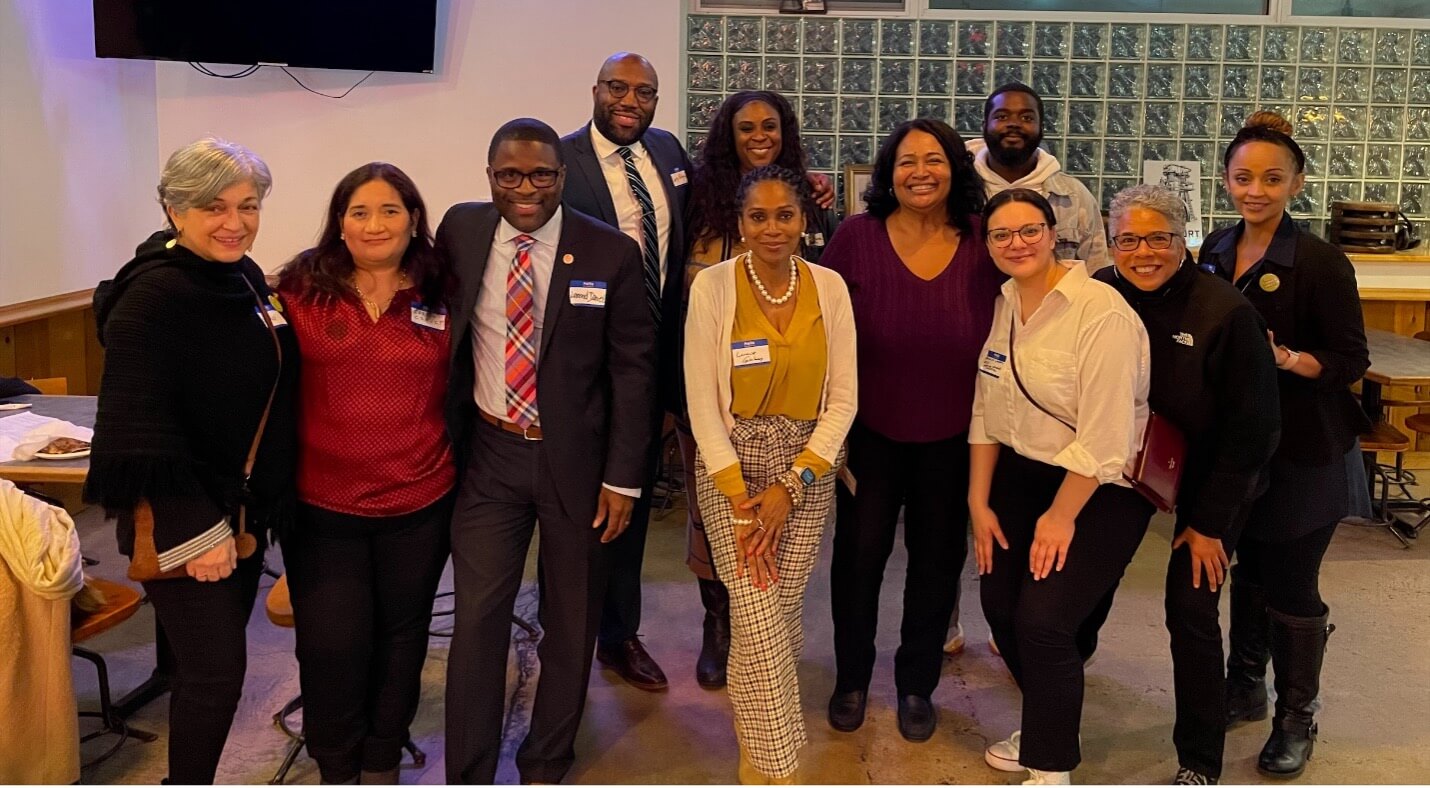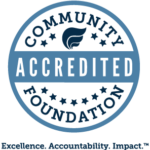Behind the Curtain: Equity Reflections with Rebecca Cordero
Feb 16, 2024
Welcome to the first blog post in a new series featuring Community Foundation team members reflecting on their personal DEI journeys and that of the Foundation overall.
“In life, people are often on the lookout for those moments when you’re trusting your gut to get out of danger…with these changes, I trust my instinct to go deeper, to continue learning, realigning, and trying new things.”
Rebecca Cordero
manager, center for nonprofit excellence
Rebecca started at FCCF in 2019 as a Community Impact Program Associate before moving to her current role as Manager, Center for Nonprofit Excellence in 2022. Prior to that, her bachelor’s degree in political science and master’s in Nonprofit Management landed her a role in corporate giving for regional and corporate clients, helping direct corporate giving to organizations aligned with her clients’ philanthropic goals.
Early in her career path, Rebecca focused on centering community – making sure to seek and listen to the voices and experiences of those she encountered in her work. It was both a personal and a professional mandate she adopted. When she decided to seek a new role, FCCF provided an environment where centering community would become a core element of her work developing and managing programs to support nonprofit organizations build their capacity and develop their staffs.
Q: How is DEI part of your work at FCCF?
A: From an organizational perspective, FCCF was talking about and implementing policies, procedures, programs with an equity lens even before we specifically articulated it. Five years ago, we were not intentionally uplifting leaders of color.
Now, we are more front and center. There’s more clarity about systemic barriers nonprofit leaders of color specifically face. I’ve had the privilege to make the changes I needed to make to ensure CNE programming is on the same path, serving Leaders of Color in communities of color so their voices are amplified – and I’ve only felt supported in doing that.
In life, people are often on the lookout for those moments when you’re trusting your gut to get out of danger. With these changes, I trust my instinct to go deeper, to continue learning, realigning, and trying new things.

Q: How do you know the efforts are making a difference?
A: We really look to the populations we serve – nonprofit professionals – for feedback and engagement in our processes and planning and then being transparent and responsive to that. Creating shifts, refining our focus, making deeper and different investments – these things take thoughtfulness, consideration and deep analysis using a range of perspective- and lens-taking.
The feedback has been clear and positive overall, which has allowed us to continue making those shifts and gather momentum.

Q: What does DEI mean to you?
A: I don’t know that there is one definition, it differs from person to person because it’s a mindset and a movement. DEI is cultural conversation, and the negative impact of systemic barriers are clear. For me, it’s about people having an opportunity to thrive, achieve and live life however they want without challenges based on who they are.
People aren’t always ready to challenge an existing norm or system. It takes commitment and courage – and not everyone is – or ever will be – ready to act. It’s complicated.
But when that lightbulb goes off – in a person, organization, or company – the logical next step is to act. We want more lightbulbs to go off – and I believe that uplifting the voices of those who have been oppressed, reflecting on those experiences, empowers others to be brave and make the commitment to do more.

Q: What motivates you to continue your journey?
A: Constantly messing up. We’re all going to say or do the wrong thing sometimes, and being in a supportive work environment where colleagues feel safe to call me out or I can be reflective and share – has such a positive impact personally and in all aspects of my work. Everyone is learning and growing together.
I feel lucky that FCCF has taken a strong stance in DEI and equity in our community. Our internal operations, many of our processes, our strategic plan – they all validate that. It’s a north star that allows me to consistently see where we, our community, and our government are falling short, but I know these are the opportunities for growth and action. It helps clearly frame “what’s next.” I feel gratitude and a sense of belonging while investing my time and energy in the learning.
Read the next post in the series: Behind the Curtain: Crafting Equitable and Inclusive Compensation Guidelines.

